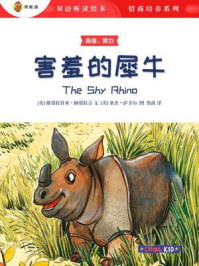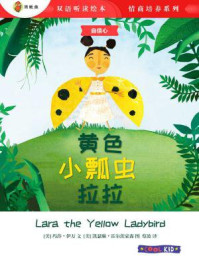





WE live under the shadow of a gigantic question mark.
Who are we?
Where do we come from?
Whither are we bound?
Slowly, but with persistent courage, we have been pushing this question mark further and further towards that distant line, beyond the horizon, where we hope to find our answer.
We have not gone very far.
We still know very little but we have reached the point where (with a fair degree of accuracy) we can guess at many things.

In this chapter I shall tell you how (according to our best belief) the stage was set for the first appearance of man.
If we represent the time during which it has been possible for animal life to exist upon our planet by a line of this length, then the tiny line just below indicates the age during which man (or a creature more or less resembling man) has lived upon this earth.
Man was the last to come but the first to use his brain for the purpose of conquering the forces of nature. That is the reason why we are going to study him, rather than cats or dogs or horses or any of the other animals, who, all in their own way, have a very interesting historical development behind them.
In the beginning, the planet upon which we live was (as far as we now know) a large ball of flaming matter, a tiny cloud of smoke in the endless ocean of space. Gradually, in the course of millions of years, the surface burned itself out, and was covered with a thin layer of rocks. Upon these lifeless rocks the rain descended in endless torrents, wearing out the hard granite and carrying the dust to the valleys that lay hidden between the high cliffs of the steaming earth.

IT RAINED INCESSANTLY
(不断地下雨)
Finally the hour came when the sun broke through the clouds and saw how this little planet was covered with a few small puddles which were to develop into the mighty oceans of the eastern and western hemispheres.
Then one day the great wonder happened. What had been dead, gave birth to life.
The first living cell floated upon the waters of the sea.
For millions of years it drifted aimlessly with the currents. But during all that time it was developing certain habits that it might survive more easily upon the inhospitable earth. Some of these cells were happiest in the dark depths of the lakes and the pools. They took root in the slimy sediments which had been carried down from the tops of the hills and they became plants. Others preferred to move about and they grew strange jointed legs, like scorpions and began to crawl along the bottom of the sea amidst the plants and the pale green things that looked like jelly-fishes. Still others (covered with scales) depended upon a swimming motion to go from place to place in their search for food, and gradually they populated the ocean with myriads of fishes.

THE ASCENT OF MAN(人的进化)
Meanwhile the plants had increased in number and they had to search for new dwelling places. There was no more room for them at the bottom of the sea. Reluctantly they left the water and made a new home in the marshes and on the mudbanks that lay at the foot of the mountains. Twice a day the tides of the ocean covered them with their brine. For the rest of the time, the plants made the best of their uncomfortable situation and tried to survive in the thin air which surrounded the surface of the planet. After centuries of training, they learned how to live as comfortably in the air as they had done in the water. They increased in size and became shrubs and trees and at last they learned how to grow lovely flowers which attracted the attention of the busy big bumble-bees and the birds who carried the seeds far and wide until the whole earth had become covered with green pastures, or lay dark under the shadow of the big trees. But some of the fishes too had begun to leave the sea, and they had learned how to breathe with lungs as well as with gills. We call such creatures amphibious, which means that they are able to live with equal ease on the land and in the water. The first frog who crosses your path can tell you all about the pleasures of the double existence of the amphibian.
Once outside of the water, these animals gradually adapted themselves more and more to life on land. Some became reptiles (creatures who crawl like lizards) and they shared the silence of the forests with the
insects. That they might move faster through the soft soil, they improved upon their legs and their size increased until the world was populated with gigantic forms (which the handbooks of biology list under the names of Ichthyosaurus and Megalosaurus and Brontosaurus) who grew to be thirty to forty feet long and who could have played with elephants as a full grown cat plays with her kittens.

THE PLANTS LEAVE THE SEA
(植物离开海水)
Some of the members of this reptilian family began to live in the tops of the trees, which were then often more than a hundred feet high. They no longer needed their legs for the purpose of walking, but it was necessary for them to move quickly from branch to branch. And so they changed a part of their skin into a sort of parachute, which stretched between the sides of their bodies and the small toes of their fore-feet, and gradually they covered this skinny parachute with feathers and made their tails into a steering gear and flew from tree to tree and developed into true birds.
Then a strange thing happened. All the gigantic reptiles died within a short time. We do not know the reason. Perhaps it was due to a sudden change in climate. Perhaps they had grown so large that they could neither swim nor walk nor crawl, and they starved to death within sight but not within reach of the big ferns and trees. Whatever the cause, the million year old world-empire of the big reptiles was over.
The world now began to be occupied by very different creatures. They were the descendants of the reptiles but they were quite unlike these because they fed their young from the “mammæ” or the breasts of the mother. Wherefore modern science calls these animals “mammals.” They had shed the scales of the fish. They did not adopt the feathers of the bird,but they covered their bodies with hair. The mammals however developed other habits which gave their race a great advantage over the other animals. The female of the species carried the eggs of the young inside her body until they were hatched and while all other living beings, up to that time, had left their children exposed to the dangers of cold and heat, and the attacks of wild beasts, the mammals kept their young with them for a long time and sheltered them while they were still too weak to fight their enemies. In this way the young mammals were given a much better chance to survive, because they learned many things from their mothers, as you will know if you have ever watched a cat teaching her kittens to take care of themselves and how to wash their faces and how to catch mice.
But of these mammals I need not tell you much for you know them well. They surround you on all sides. They are your daily companions in the streets and in your home, and you can see your less familiar cousins behind the bars of the zoological garden.
And now we come to the parting of the ways when man suddenly leaves the endless procession of dumbly living and dying creatures and begins to use his reason to shape the destiny of his race.
One mammal in particular seemed to surpass all others in its ability to find food and shelter. It had learned to use its for-feet for the purpose of holding its prey, and by dint of practice it had developed a hand-like claw. After innumerable attempts it had learned how to balance the whole of the body upon the hind legs. (This is a difficult act, which every child ha to learn anew although the human race has been doing it for over a million years.)
This creature, half ape and half monkey but superior to both, became the most successful hunter and could make a living in every clime. For greater safety, it usually moved about in groups. It learned how to make strange grunts to warn its young of approaching danger and after many hundreds of thousands of years it began to use these throaty noises for the purpose of talking.
This creature, though you may hardly believe it, was your first “ma-like” ancestor.
我们活着有一个极大的疑问。
我们是谁?
我们是从哪里来的?
我们是往哪里去?
我们已把这疑问慢慢的但是鼓着坚执的勇气推到不能再推的地方,希望在那里可以得到我们的答案。
我们所推的不远,所以知道的事情不多;但我们已经达到一个由此可以猜想出许多事情的地方了。
在这一章书内,我要告诉读者人类的舞台最初是怎样(按我们十分的相信)成立的。
假使我们以上图的长线代表动物在地球上生存的年代,那么长线下的短线,就是代表我们人类(或是一种多少与人相似的动物)在地球上生存的年代。
我们所以要研究人的历史,是因为他在地球上虽然最后出现,但是最早能运用他的脑力去支配自然的势力。猫、狗、马以及其他动物,虽也有它们有趣的历史,但没有人类所有的这种特色。
我们现在所居的星球,最初原是(按我们现在所能知道的)一个大火球,在那漫无边际的太空中,仅仅是一点小小的烟雾。在无数年代的过程中,星球的表面渐渐烧尽后,结起一层稀薄的石皮。无休无尽的雨水,不断的冲击这些没有生命的石块,把它们击成细沙尘埃,带入蒸汽腾腾的地球上的高峰之间的山谷里。
到后来,太阳从云端里探首出来,望见这小小的星球上现出几个小水潭。这些小水潭以后逐渐变成东西两半球的大洋。
于是有一天一个大奇迹发生了。那没有生命的得到了生命。
最初的有生命的小细胞在海面上漂浮,没有目的的随波逐浪了无数年。但在这些年代内,它却发展了一种习惯,就是容易生存在这凄凉的地球上的习惯。其中有的小细胞非常欢喜住在小河与池塘的昏暗的深底里。它们就在从山顶冲下来的黏土上生根,长成了植物。有的宁愿到处移动,就生出奇怪的有关节的腿,像蝎子似的开始在海底的植物与像水母似的淡绿东西之间爬行。此外又有些遍体有鳞的东西,靠着一种游泳的动作到处来往寻食物;它们逐渐在海洋内繁殖了无数的鱼类。
同时那些植物也增加了数目。海底已无它们容身之地,于是不得不离开海水,去到山脚的泥滩或湿地上另筑新家。海潮每天上来两次,将它们全身泡在咸水内。其余时,它们就在不舒服的情况中将就对付,并且设法在包围星球表面的稀薄空气里生活着。经过许多年代的训练,它们学会如何在空气内生活与当年在水里生活同样的舒服。它们的骨干长大了,长成大小的树木,到最后,学会如何开美丽的鲜花,引动大野蜂与飞鸟的注意,这些蜂与鸟替它们到处去传播种子,使全世界都铺满了绿沉沉的草地和阴森森的树林。
有的鱼类也渐渐离开海水,学会了如何用肺呼吸与用鳃呼吸一样方便。我们称这类动物为两栖类,意思就是它们既可以陆居,又可以水居。你在半路遇到的小青蛙就可以告诉你两栖类的二重生活的快乐。
这些动物,一旦离开水,渐渐能适应于陆居的生活。有的变成爬虫类(像壁虎之类会爬的),它们与昆虫同享树林里的安静。它们为要在松土上来去得快些,便把它们的腿改良了,体格增长了,直到这世上充满无数庞大的动物〔生物学教科书上将它们分为鱼龙(Ichthyosaurus)、斑龙(Megalosaurus)、雷龙(Brontosaurus)三种〕,这种动物长大到三四丈之长。
有的爬虫类开始迁居到树顶,那时的树往往高至十余丈。它们不用腿走,所以必须另有方法迅速地往来于树林间。于是它们把身体上一部分的皮肉变成一对翅膀与足趾间的掌皮,翅膀渐渐长满了羽毛,又把尾巴当作舵,如此便可以自由飞翔,最后就发展成真正的飞鸟。
这时又发生一件奇怪的事情。所有的庞大爬虫类统在一个短时期内死绝了。我们不知为什么。也许是为骤然改变气候的缘故。也许是为它们长得太大,以至不能游泳,不能走,也不能爬,即在它们近旁的羊齿与树,只是可望而不可即,因此而饿死的。不管是什么原因吧,总之,百万年的庞大爬虫类的世界是完了。
现在的世界渐被许多不同样的生物所占据。这些生物都是爬虫类的后裔,但与它们绝对不同,因为它们抚养孩子是用母亲的乳哺的。这种动物现在称为“哺乳动物”。它们身上脱落了鱼鳞,不采用羽毛,而披满了毛发。这些哺乳动物后来发展许多别的习惯,使它们的种族得到一个比任何动物都占便宜的极大利益。母的哺乳动物怀卵在腹内,直到孵生之日。别的动物一向都把它们的孩子丢在一旁,任凭它们挨冻受热或被野兽吞食,独有哺乳动物与它们的孩子相处很久,在孩子们尚无能力抵抗仇敌之前,永远庇护它们。这样,使小的哺乳动物有极好的生存机会,因为它们从它们的母亲们学到许多本领。你只要看一只老猫教导它的小猫如何保护身子,如何洗脸,如何捉老鼠,你就可以明白了。
关于这些哺乳动物用不着我多说,因为你知道的很清楚了。你的周围都有它们,不论你出门或在家,它们无时无刻不是你的同伴;在动物园的木栅里,还有你远房的从兄弟呢。
现在我们走到歧路口了,那时人类忽然脱离过哑巴生活的动物所走的无穷尽的行程,开始运用他们的理性来定他们种族的运命。
有一种哺乳动物的寻食与找居处的能力仿佛比一切的动物特别强。它们学会用前足拿食物,靠着天天练习的功效,前足就变成手样的爪子。又经过无数次的试验,它们学会如何使全身称平在两条后腿上(这是一件艰难的工作,人类虽已有过一百万年以上的经验,然而每个小孩尚须重新学过)。
这种半猿、半猴式的,但优胜于此二者的动物,后来成为最成功的猎户,且在任何气候下都可以生活。它们为求安全起见,出游时都结队而行。它们学会做一种怪声去警告将要遇险的孩子。如此又经过几千百年之后,他们渐渐用喉音说话了。
这种动物,虽然很难相信,确是你的“像人”的祖先。


